Table of Contents
Granite is a gorgeous, durable stone with extremely simple cleaning instructions. These cleaning instructions are so simple that many homeowners tend to overcomplicate the cleaning process required to care for their granite countertops. There are many ingredients that may further damage your granite, even if you have good intentions!
[get_quote]
While these ingredients may be useful in other places in your home, they should definitely be avoided in regards to your natural stone features as a chemical reaction may cause damage. Take a look at what should be avoided, and how to properly clean your granite countertops with our tips and tricks.
There is a long list of ingredients that can damage your granite countertops. Any product that is not pH neutral may cause damage to your natural stone. For reference, a neutral pH is that of 7, while anything above that being considered “basic,” while anything below that being considered “acidic.”
What cleaning products cannot be used on granite?
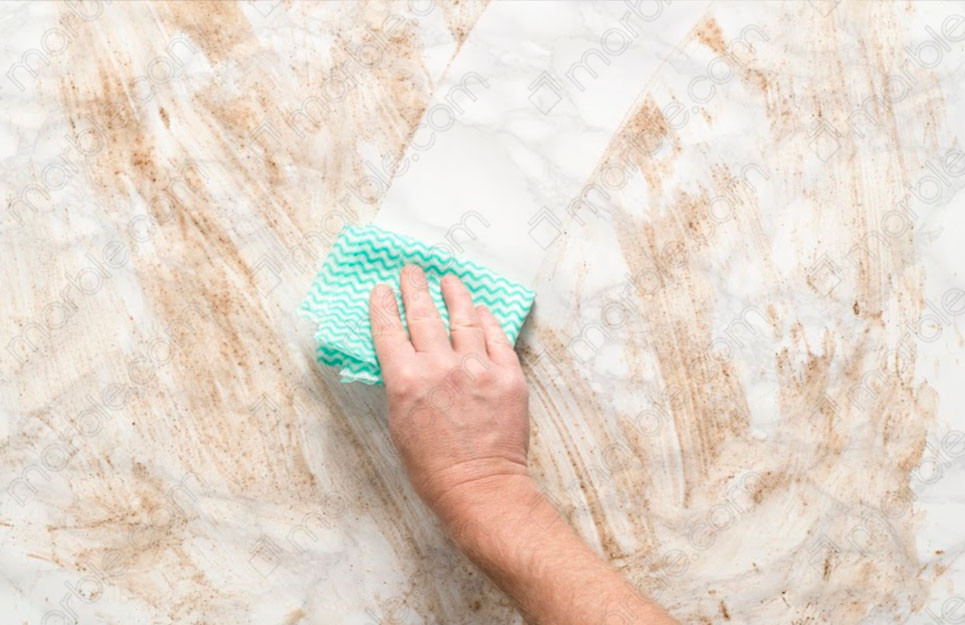
Many websites recommend these cleaning products as essentials to your at-home cleaning kit. While they may be extremely helpful in other areas of your home, you should not use the following items on your granite countertops.
Here is a quick list of items to avoid:
- Bleach
- Windex that contains ammonia
- Clorox
- Pledge
- Lysol
- Formula 409
What does it mean to be pH neutral?
One of the main reasons for ingredients being unsuitable for usage on granite countertops is their pH level. Many individuals hear the phrase pH without understanding exactly what it means, but understanding the science behind your granite countertops will help you further appreciate your new stone features.
Granite was created through millions of years of cooling magma beneath the earth. As granite was created through a chemical process, it is delicate in terms of reactions to other chemicals. A pH neutral solution is considered to have a pH of 7. A solution that is very high or very low pH may cause discoloration or other types of damage.
To be pH neutral means it is right in between being an acidic solution and a basic, or alkaline, solution. To put it simply, pH is determined by the concentration of hydrogen ions in a solution. Solutions with pH levels above 7 are considered basic or alkaline while solutions with pH levels below 7 are considered acidic.
An example of a solution with a pH of 0, or a highly acidic solution, is battery acid. An example of a solution with a pH of 14, or a highly basic solution, is liquid drain cleaner.
Why are some cleaning products not suitable for use on granite?
Bleach
Bleach is one of the worst options for cleaning your granite countertops. Bleach can cause extreme staining as well as cause the sealant to wear off faster. While a great disinfectant, we recommend looking elsewhere for antibacterial solutions. Bleach will dull the finish of your granite pattern, and in extreme cases, even completely change the stone’s color. It typically has a pH level between 11 and 13.
Windex and Other Glass Cleaners
It may feel obvious that products like Windex will help polished countertops. Windows and mirrors are both shiny and high gloss like a polished countertop, but in actuality, it can cause extreme discoloration. Most Windex or glass cleaner products contain ammonia, which is not recommended for use on natural stone. Glass cleaning products can create a dull finish on your countertops, and may even dry in an uneven, patchy way leading to even further unattractive issues. This product can even strip the sealant off your granite countertops, leaving it susceptible to other damage. It typically has a pH level of around 9.
Clorox
Clorox is a common cleaning brand, which is well-loved for its ability to clean just about any place in your home. Well, almost anywhere. Clorox should absolutely not be used on natural stone features as it contains many ingredients that can cause damage, including the aforementioned bleach and citric acid. Whether using Clorox wipe or the multi-purpose cleaning fluid, this brand should not be used on granite countertops. Its pH levels differ greatly depending on the product, however, since it contains bleach and/or citric acid, it will definitely not be considered neutral and should be avoided.
Pledge
Pledge has a highly recognizable lemon scent, which is the main reason for not being able to use it on granite countertops. Lemons, and lemon scents, contain citric acid, which can cause damage to the sealant of your countertop. It typically has a pH level between 3 and 6.
Formula 409
Formula 409 is typically used in bathroom settings as it can be used on most bathroom surfaces. Granite can be used in bathrooms as a vanity top, however, we do not recommend using Formula 409 on it as it can cause damage and discoloration. Like other items on this list, this brand should be completely avoided for your granite stone features.
What can be used on granite?
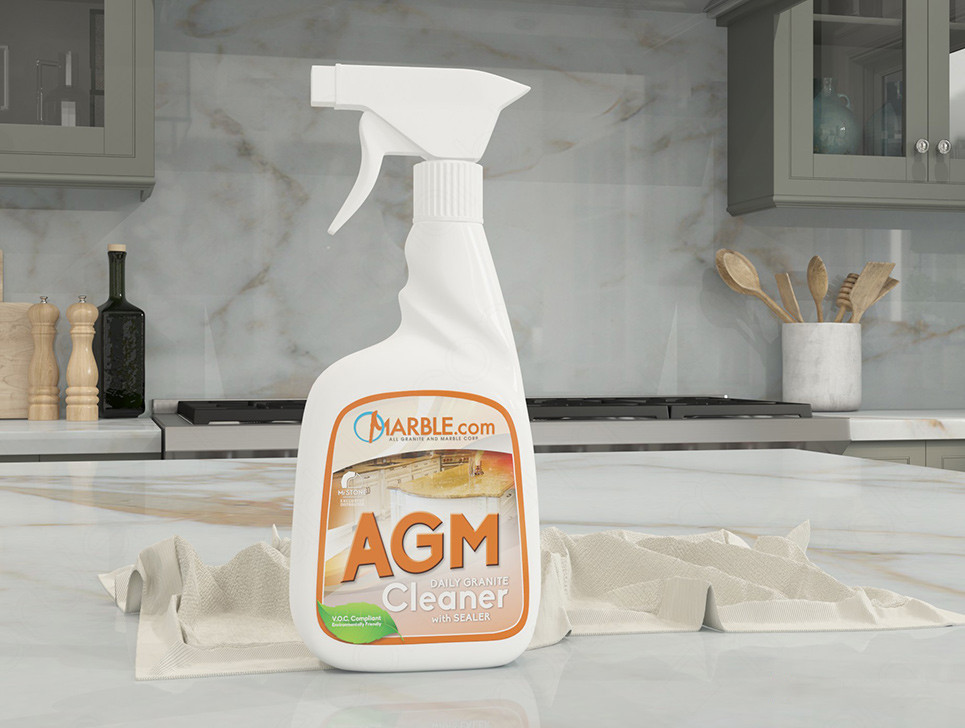
Now that you know what ingredients to avoid for your granite countertops, you may find yourself asking: “Well, what can I use?”
Luckily for you, cleaning granite countertops is extremely easy.
[get_quote]
Our top recommendation is to use a specialty-made granite countertop cleaner. We recommend using the All Granite and Marble Countertop Cleaner, available from Mr. Stone. This product contains ingredients that seal while it cleans, allowing homeowners to avoid having to use a sealant outside of regular cleaning. To use the product, simply spray the counter and wipe it dry. It will remove granite hazards, such as grease, oils, and other marks.
Homeowners can also create easy, at-home cleaning products using warm water and a mild dish detergent, however, keep in mind that it is not the most effective way to clean granite. While this solution may help you in a pickle, we recommend buying a specialty-made granite countertop cleaner to ensure your granite countertops stay safe.
Conclusion
It is important to properly care for your granite countertops after installation. The last thing any homeowner wants is to ruin their brand new countertops with careless actions. Lucky for you, it is remarkably easy to care for your granite stone features. Simply avoid harsh ingredients like the ones we have mentioned, and wipe your granite countertop surface down with a suitable cleaning solution. With these tips and tricks, you’ll have a beautiful granite countertop for years to come.













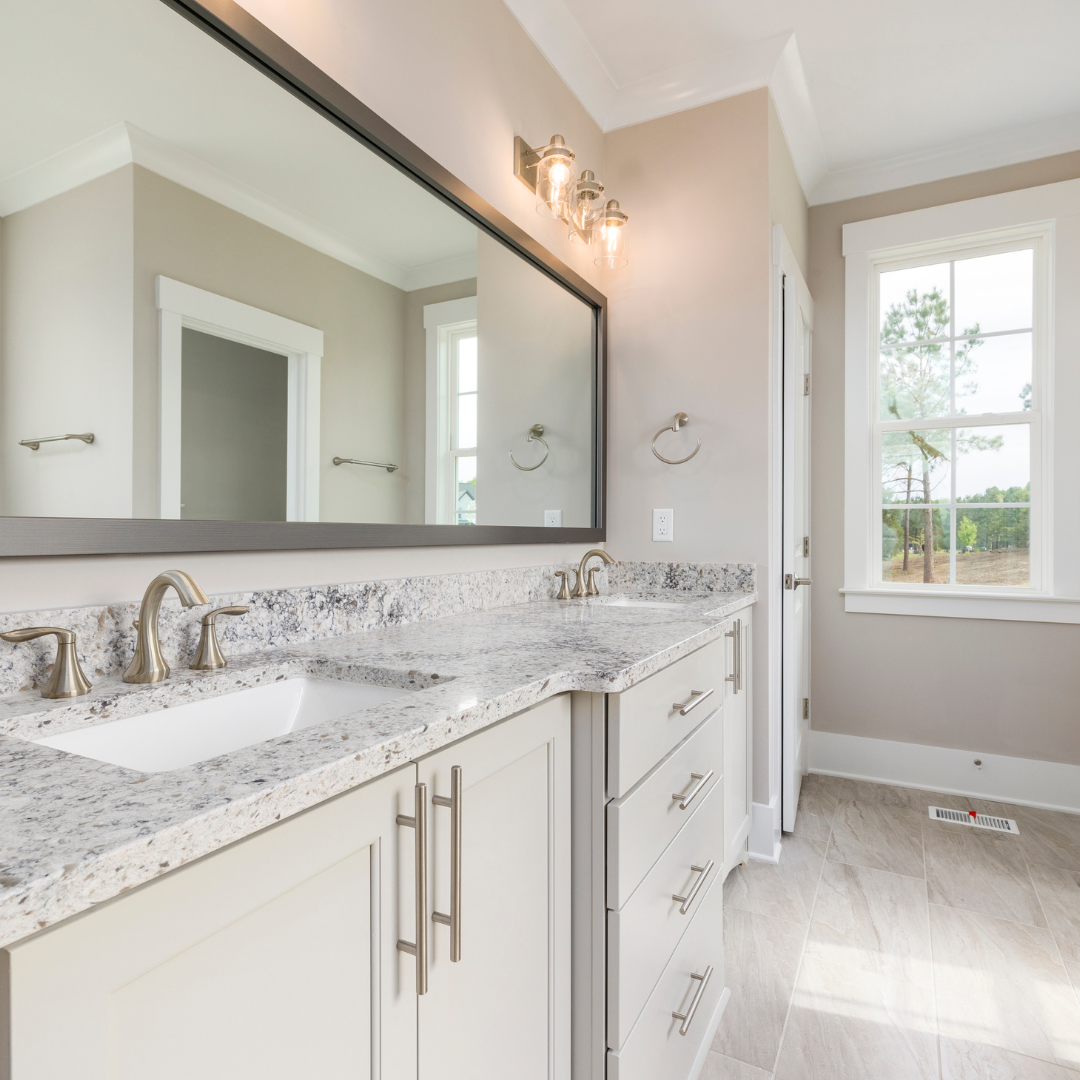
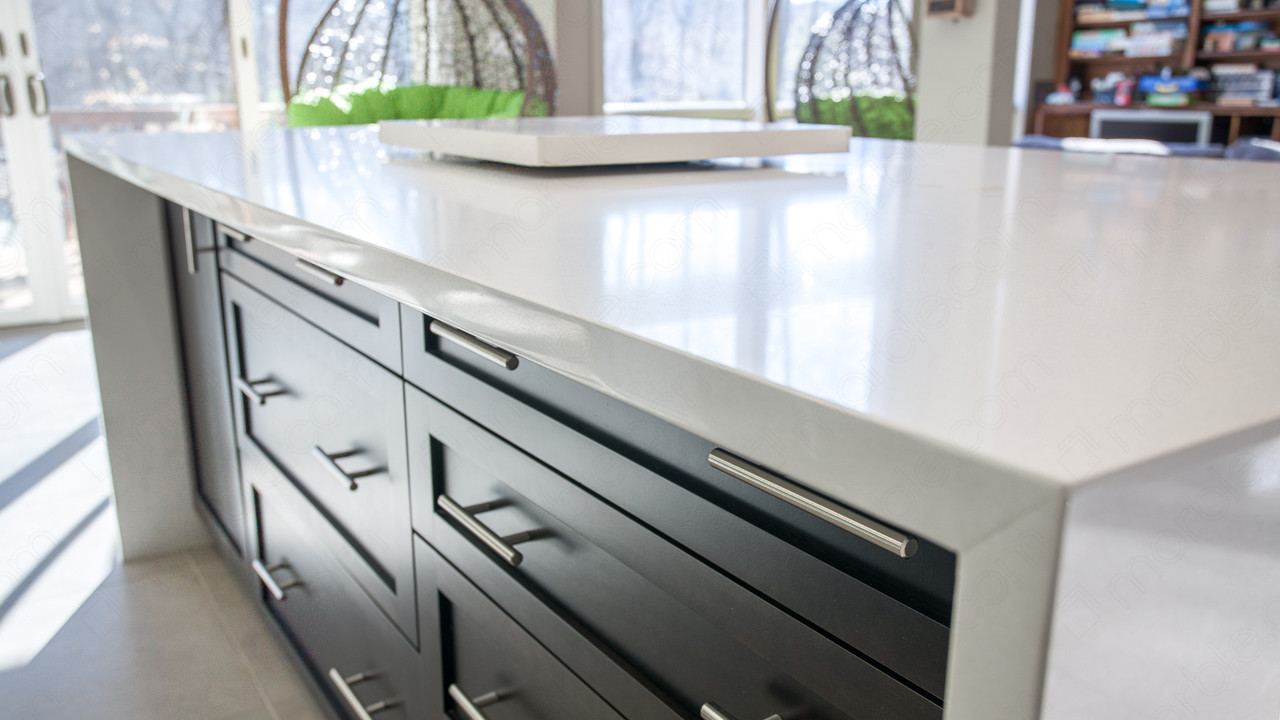
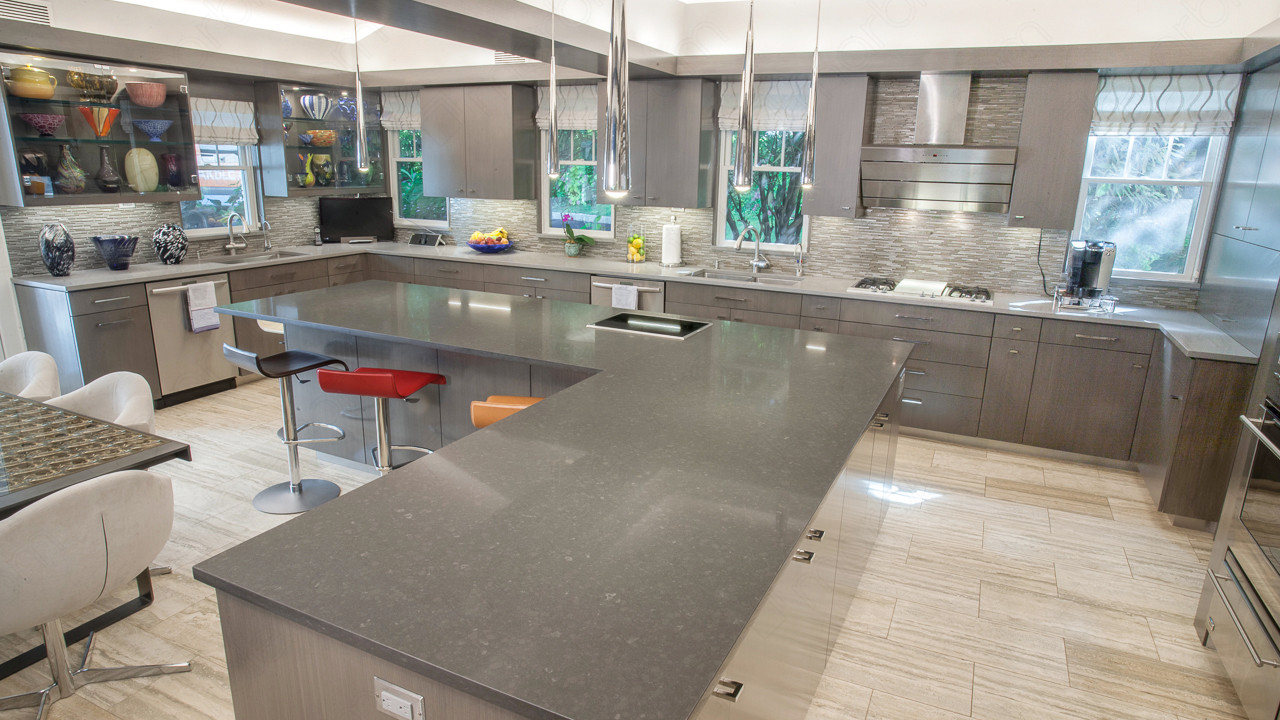
 The article helped me immensely
The article helped me immensely
 I’m now more informed on the subject
I’m now more informed on the subject
 I have questions about Marble.com
I have questions about Marble.com
 The article was not accurate at all
The article was not accurate at all
 There is a serious lack of information
There is a serious lack of information
 I have questions about Marble.com
I have questions about Marble.com